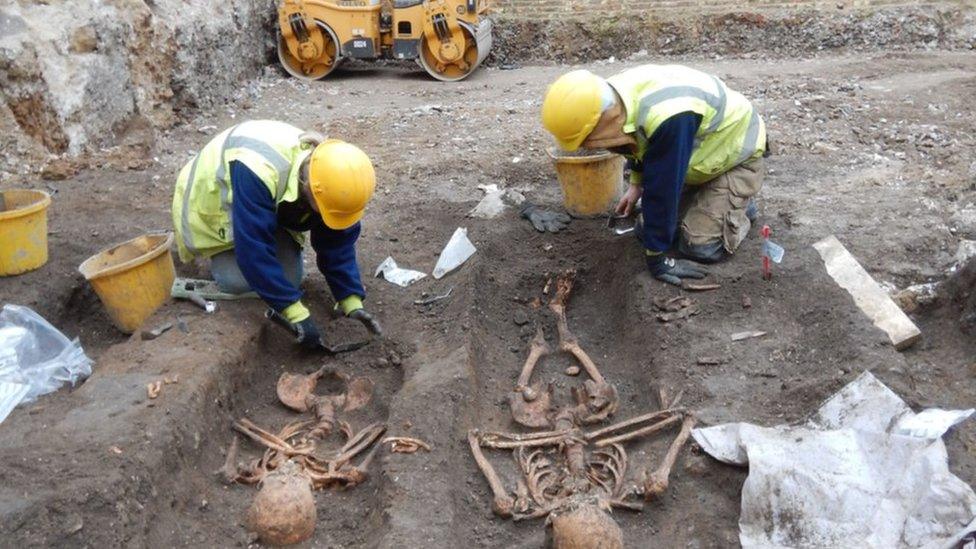Skeleton of Lincolnshire priest found after 700 years
- Published
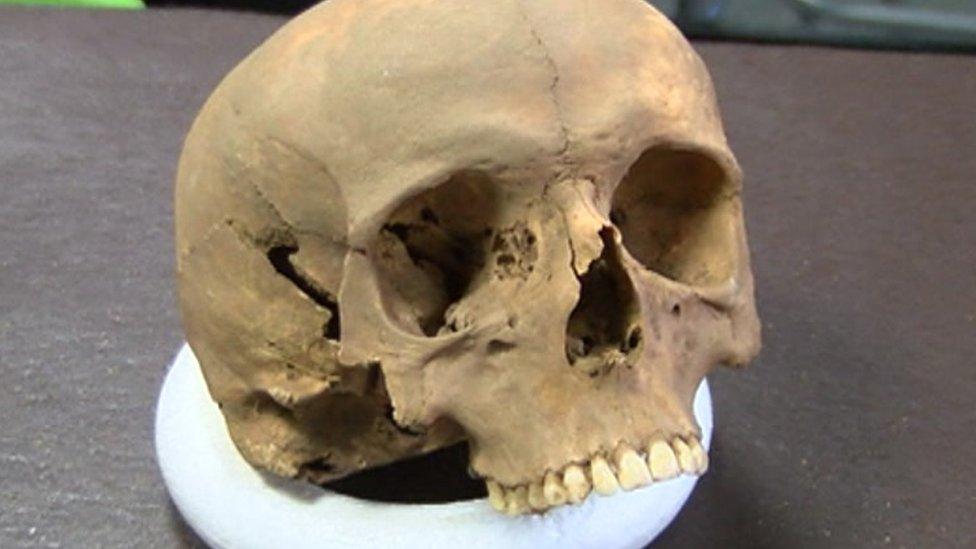
Archaeologists unearthed the skeleton of priest Richard de W'Peton, who died 17 April 1317, near the altar of Thornton Abbey's former hospital chapel
The remains of a medieval priest who died 700 years ago have been uncovered in an elaborate grave in Lincolnshire.
University of Sheffield archaeologists uncovered the rare find at Thornton Abbey in Lincolnshire, which was founded as a monastery in 1139.
The grave of Richard de W'Peton, who died on 17 April 1317, was found near a former hospital chapel's altar.
W'Peton is abbreviated from Wispeton, a medieval version of modern Wispington in Lincolnshire.
Laboratory tests established that de W'Peton was 35-45 years-old at the time of his death and 5ft 4in tall.
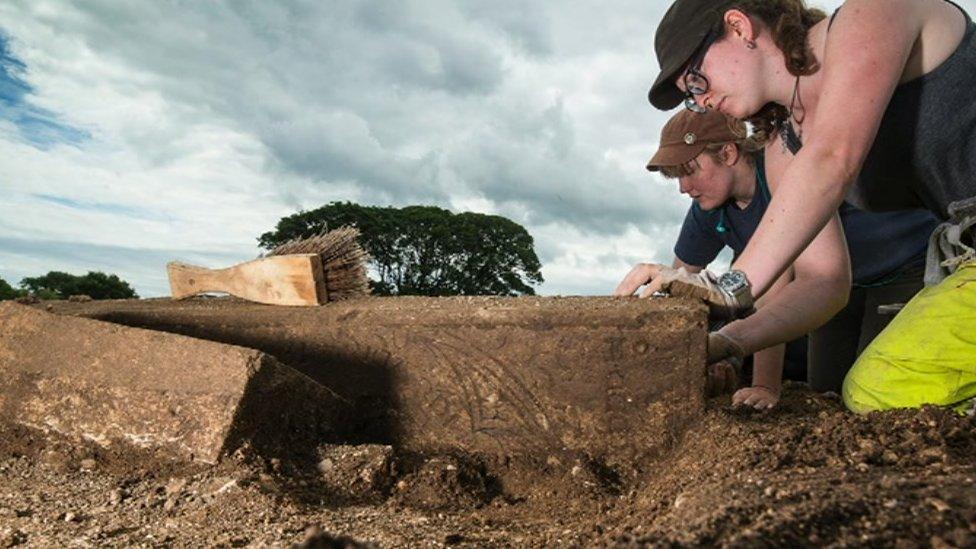
Archaeologists have been excavating the site at Thornton Abbey for several years
A 3D skull scan revealed a depression in the back of his head, suggesting a blunt force trauma many years before his death - but archaeologists think he may have died during the great European famine of 1315-1317.
Hugh Willmott, of the university's archaeology department, said the abbey's medieval hospital cared for the poor, hungry and sick.
Dr Willmott, who has worked on the Thornton Abbey excavation since 2011, said: "Great famine sites like Thornton would have found themselves on the front-line.
"Richard would have ministered to the starving, working in the face of desperately limited resources, and perhaps despite these efforts, he too succumbed to the natural disaster that was unfolding around him."
The famine across Europe was brought on by a spring and summer of "relentlessly heavy rain" causing widespread crop failures, Dr Willmott said.
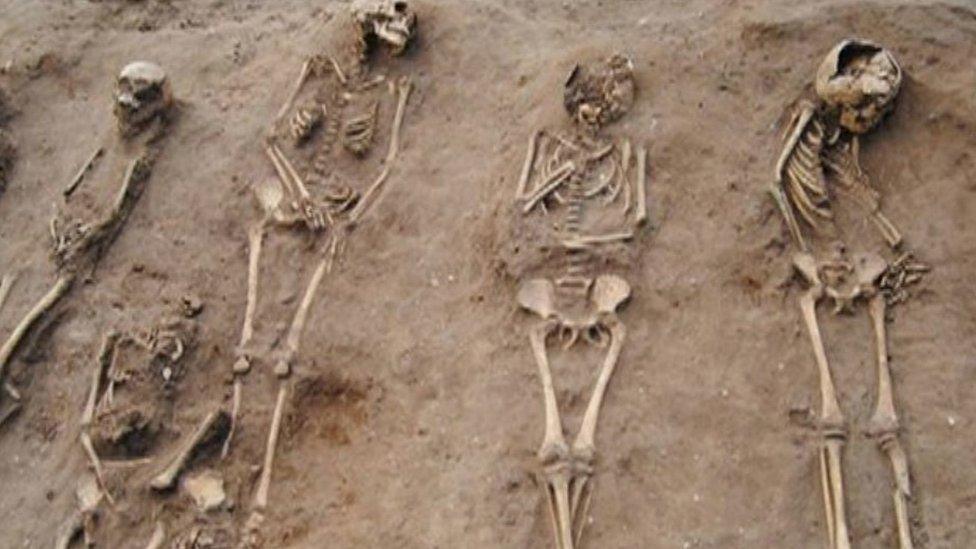
In 2016, University of Sheffield archaeologists found a mass burial site of 48 Black Death victims, many of them children, at Thornton Abbey hospital
University of Sheffield archaeology PhD student Emma Hook discovered the skeleton amid fragments of a wooden coffin.
She said: "Although Richard ended his days in the priesthood, there is also some suggestion that he might have had humbler origins in more worldly work.
"His bones show the marks of robust muscle attachments, indicating that strenuous physical labour had been a regular part of his life at some stage.
"Nor had his childhood been easy - his teeth show distinctive lines which indicate his early years were marked by malnutrition or illness."
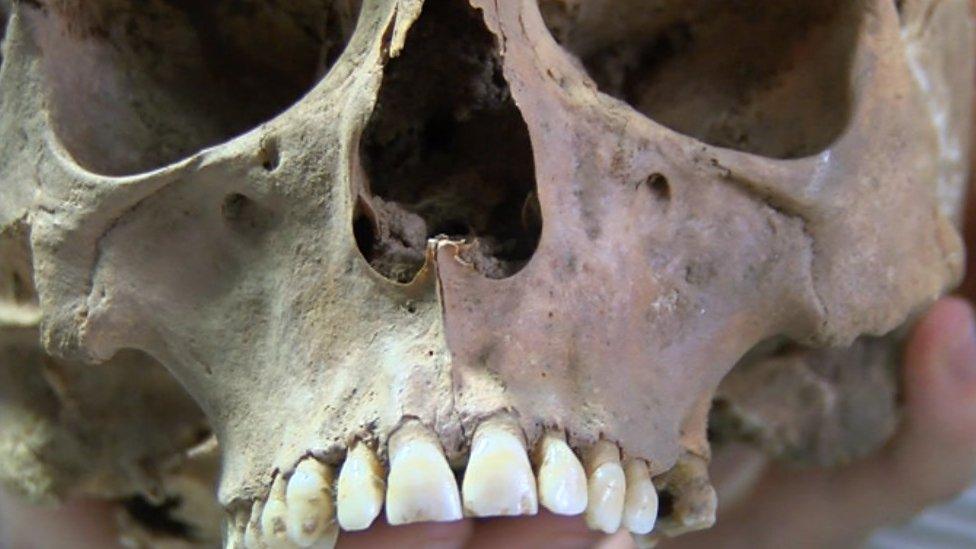
Richard de W'Peton may have had a hard childhood because his teeth show distinctive lines, indicating that his early years had been marked by a period of malnutrition or illness
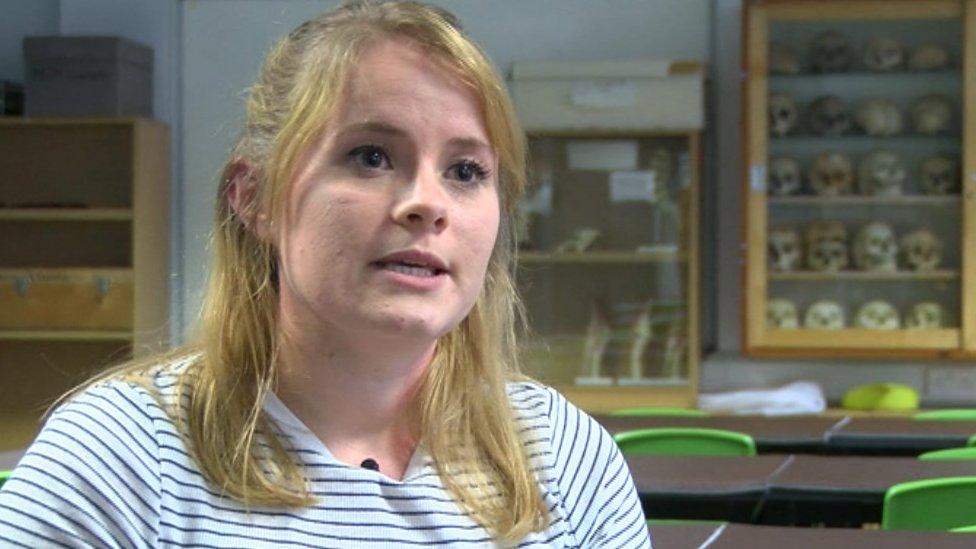
PhD student Emma Hook discovered the skeleton amid fragments of a wooden coffin
Once research is complete, Richard de W'Peton's remains will be laid to rest at a church in Barton-on-Humber.
For more stories about archaeology follow BBC England's Pinterest board, external.
- Published30 November 2016
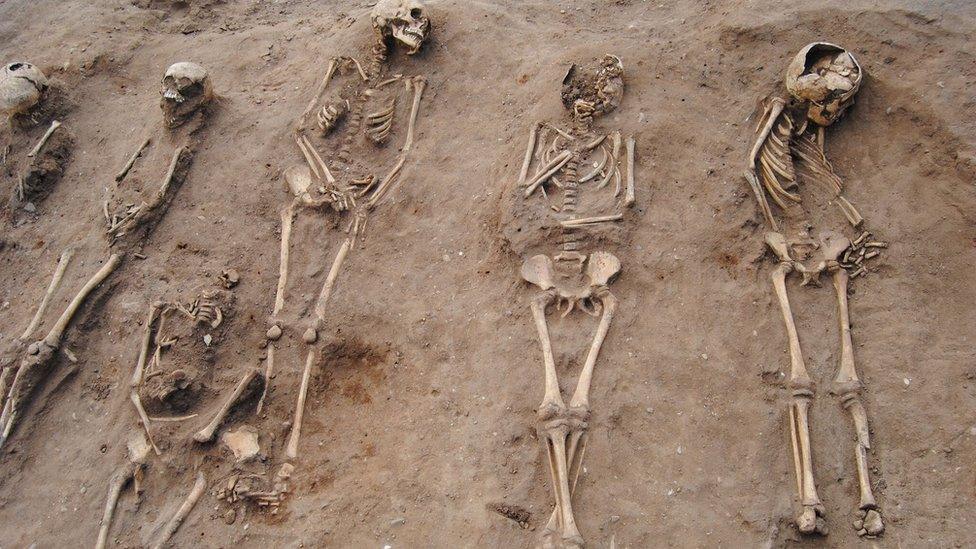
- Published25 January 2017
